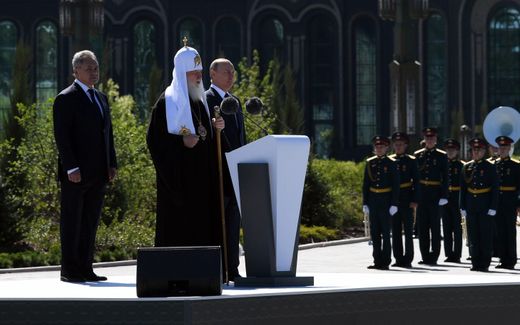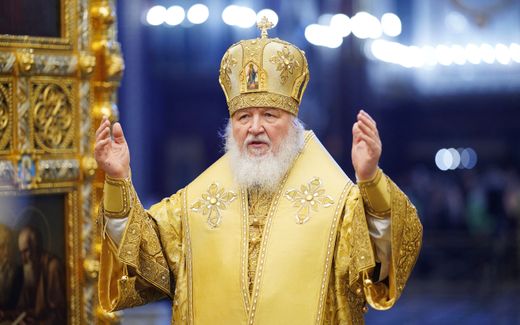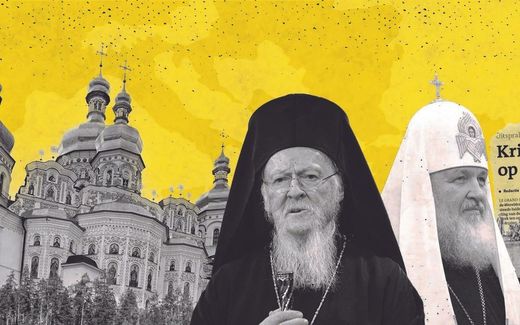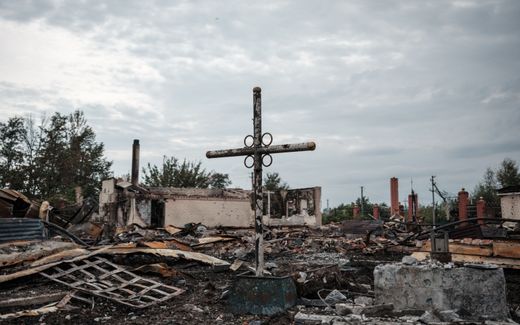German theologian: Kirill's rhetoric similar to German war theology during World War
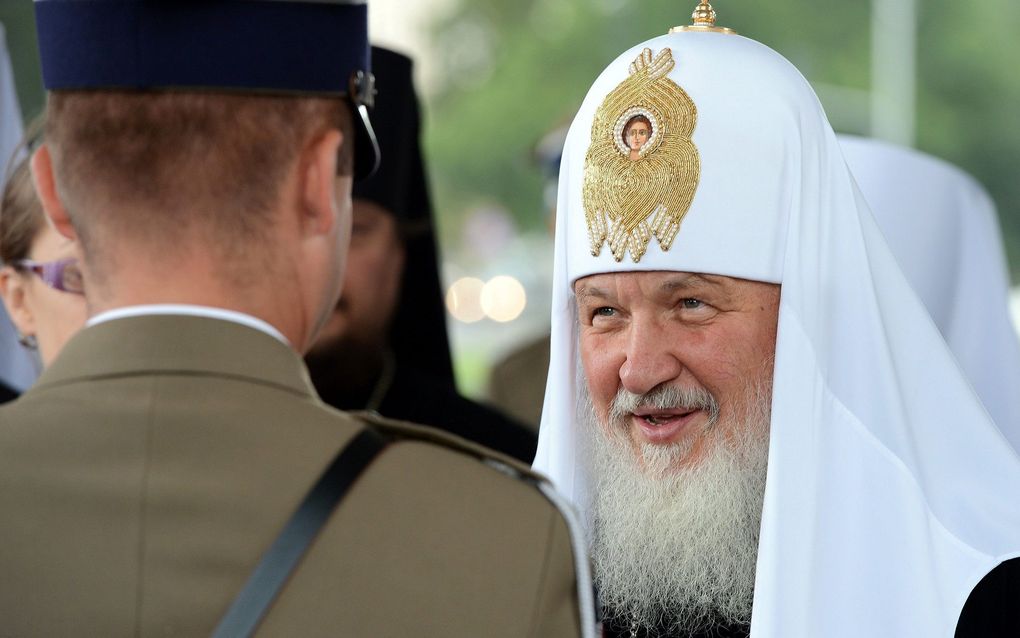
Patriarch Kirill earlier at a flower-laying ceremony. Photo EPA, Radek Pietruszka
Eastern Europe
The German theologian Friedrich Erich Dobberahn sees parallels between the rhetoric of the Russian Patriarch Kirill and the propaganda prevalent during the First and Second World Wars.
The Biblical message has been massively distorted for patriotic enthusiasm for the war, says Dobberahn to Evangelisch.de. In both Kirill's statements as well as in the war propaganda from the 20th century, he sees that the universal message of Christ is nationalised. "This is the assertion that God is exclusively on the side of a single people as an ally", he says to Evangelisch. In addition, he points out that the soldiers are given the notion that they are fighting for Christ. "Soldiers are told that they are part of the universal history of salvation, even with all the atrocities they commit in war."
Commandment
Recently, Dobberahn re-published his book "German Theology in the Service of War Propaganda." According to the author, war propaganda infiltrated the whole life of Germans. He looked at war sermons, war liturgies, hymnals and poetry. He saw that the fifth commandment, "thou shalt not kill," was declared a necessity for the world's salvation.
"The enemies of Germany were considered the enemies of God. They were seen as creatures of Satan and had to be destroyed", Dobberahn points out. Sermons re-interpreted texts about peace, and hymns were re-written in a military style. Furthermore, religious education and pastoral care incorporated war elements. "Whenever "church took place", including at universities", it mixed and falsified the Biblical content with genuine German traditions of folkish, pre-enlightenment myths of origin, of a mission of all Germans to save the world on behalf of God, of racial purity and self-sacrifice in the imitation of Christ", he says.
Heavenly battle
The same trend is now seen in Russia, Dobberahn argues. He notices that the war is seen as a victory of the good powers over the evil forces and as a heavenly battle. "Awakened and charged by the power of God, which has already revealed itself in the Easter victory of Christ, the redeemer nation, Russia and Putin, his generals and soldiers now step into the service of God's universal saving power." As a consequence, soldiers see their work as a mission of Christ and consider executions, for example, to be a "just judgment on the enemies of God." In addition, they see Putin as God's messenger, as Kirill also said in 2012.
During the World Wars, theologians were prone to go along in the theologisation of the war rhetoric, Dobberahn notices. "Suddenly, thou shalt not kill, turned from the mouth of a theologian into: "You have to aim well so that you hit the target.""
Concerning the Ukrainian war, Dobberahn has a warning for Western theologians. He says they must be careful that they themselves do not fall into the trap of a theology of war. "The church must not allow itself to be bound by its criteria of faith to join those for whom war is still a political means to achieve national security", he argues. Instead, he says, the primary duty of theology is to call for repentance, not a religious gun fever.
Related Articles


